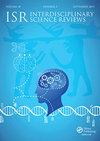罗素与定性空间推理的基础:第一步
IF 1.1
4区 综合性期刊
Q3 MULTIDISCIPLINARY SCIENCES
引用次数: 1
摘要
摘要我们认为,英国著名哲学家和逻辑学家伯特兰•罗素的思想与人工智能的一个子领域——定性空间推理——的哲学基础有关。该领域的研究重点是对空间区域的非数值推理,旨在模仿人类的空间行为,从而避免数值方法的人为性。在简要介绍了这一领域的主要特点之后,我们分析了罗素的几何著作。我们表明,尽管在处理主题的方式上存在重大差异,但这些出版物确实有一个共同的核心,与几何的非数字、定性部分有关。因此,我们认为罗素应该被视为与怀特黑德或勒希涅夫斯基一样的定性空间推理的鼻祖。此外,我们认为定性空间推理的努力应该更多地针对他描述的几何类型。本文章由计算机程序翻译,如有差异,请以英文原文为准。
Russell and the foundations of qualitative spatial reasoning: the first steps
ABSTRACT We argue that the ideas of Bertrand Russell, a famous English philosopher and logician, have a bearing on the philosophical foundations of one of the sub–fields of AI, called qualitative spatial reasoning. The research conducted within that field focuses on non–numerical reasoning about regions of space designed to mimic human spatial behaviour and thus avoid the artificiality of the numerical approach. After briefly describing the main characteristics of this field, we analyse Russell's works on geometry. We show that despite major differences in how the subject matter is treated, these publications do have a common core that is related to the non–numerical, qualitative parts of geometry. Therefore, we argue that Russell should be viewed as a forefather of qualitative spatial reasoning on par with Whitehead or Leśniewski. Moreover, we believe that the efforts within qualitative spatial reasoning should be geared more towards the types of geometry he describes.
求助全文
通过发布文献求助,成功后即可免费获取论文全文。
去求助
来源期刊

Interdisciplinary Science Reviews
综合性期刊-综合性期刊
CiteScore
2.30
自引率
9.10%
发文量
20
审稿时长
>12 weeks
期刊介绍:
Interdisciplinary Science Reviews is a quarterly journal that aims to explore the social, philosophical and historical interrelations of the natural sciences, engineering, mathematics, medicine and technology with the social sciences, humanities and arts.
 求助内容:
求助内容: 应助结果提醒方式:
应助结果提醒方式:


